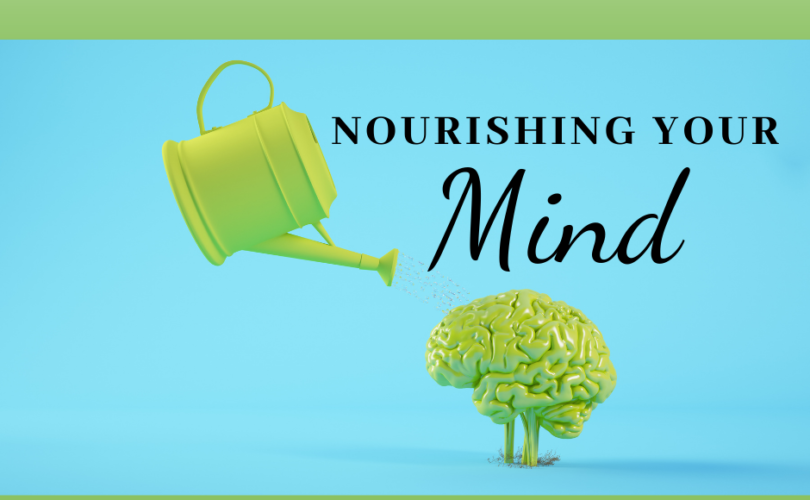Nourishing the Mind: Investigating How Nutrition Affects Anxiety Levels
jessicaadison010 January 4, 2024Overview
An increasingly investigated route in the quest for mental well-being is the relationship between anxiety levels and food. The things we eat have a significant impact on how our bodies function as well as how well our minds are balanced. This article explores how diet affects anxiety levels by looking at how nutrition, anxiety symptoms, and possible coping mechanisms interact, with an emphasis on symptoms, treatment, and relief.
Section 1: Anxiety and the Gut-Brain Axis
Getting to Know the Brain-Gut Connection:
The gut and the brain communicate with each other in both directions through the gut-brain axis. According to recent studies, anxiety levels and mental health are influenced by the gut microbiome. Sustaining this relationship requires a broad and well-balanced microbiota.
The gut microbiota has an impact on anxiety because it produces neurotransmitters, controls inflammation, and affects how the body reacts to stress. An increased risk of anxiety disorders has been associated with dysbiosis, an imbalance in the microbiome.
Section 2: Dietary Supplements for Mental Health
Omega-3 Fatty Acids:
Flaxseeds, walnuts, and fatty fish are good sources of omega-3 fatty acids, which are vital for brain function. These fats may have an effect on anxiety levels because they have anti-inflammatory qualities and support the construction of brain cell membranes.
Vitamins and Minerals:
The production of neurotransmitters and the control of mood depend on a number of vitamins and minerals, such as magnesium, vitamin D, and B-vitamins. An increase in anxiety symptoms has been linked to a nutritional shortage.
Section 3: Foods That Could Make You More Nervous
Coffee:
While a reasonable amount of caffeine can be energizing, too much of it can make anxiety symptoms worse. Due to its central nervous system stimulant properties, caffeine can aggravate heart palpitations, restlessness, and sleep disturbances.
High intakes of sugar and processed carbs can cause blood sugar levels to fluctuate, which can exacerbate irritability and mood swings. Anxiety symptoms may worsen due to blood sugar’s sharp rises and falls.
Section 4: How a Well-Balanced Diet Affects Neurotransmitters
Foods High in Tryptophan and Serotonin:
Tryptophan is an amino acid that affects serotonin, a neurotransmitter connected to mood control. Tryptophan-rich foods, like dairy products, turkey, and eggs, can aid in the production of serotonin.
Amino Acids and Protein:
Amino acids are found in protein sources and act as building blocks for neurotransmitters such as norepinephrine and dopamine. Lean protein foods including fish, chicken, beans, and nuts can help maintain the balance of neurotransmitters in the body.
Section 5: Anxiety and the Mediterranean Diet
A summary of the Mediterranean diet is as follows: the diet, which is high in fruits, vegetables, whole grains, and healthy fats, has been linked to a number of health advantages, including a possible effect on mental health. Its antioxidant and anti-inflammatory qualities might help lessen the feelings of anxiety.
Fish and Omega-3 Fatty Acids:
A great source of omega-3 fatty acids is the high consumption of fatty fish in the Mediterranean diet. These lipids have been connected to happier moods and decreased anxiety.
Section 6: Anxiety and Hydration Levels
Dehydration and Cognitive Function:
Not getting enough water might affect one’s ability to think clearly and make anxiety symptoms worse. Dehydration can cause weariness, irritability, and trouble concentrating, all of which can increase anxiety.
Water and the Production of Neurotransmitters:
Water is necessary for many biological processes, including the synthesis and movement of neurotransmitters. Maintaining proper hydration can help the nervous system operate more effectively, which may have an impact on anxiety levels.
Section 7: Possible Strategies for Dietary Relief
Including Probiotics:
The gut microbiota can be positively impacted by probiotics, which are good bacteria that are present in fermented foods like yogurt and kimchi. Eating a diet high in probiotics may help to improve the gut-brain axis and reduce anxiety.
Adaptogens and Herbal Teas:
A number of herbal teas, including chamomile and lavender, offer relaxing qualities that can aid in lowering anxiety. Herbs known as adaptogens, which include rhodiola and ashwagandha, may help the body cope with stress.
Section 8: Customized Diet and Anxiety Control
Individual Variability in Nutrient Needs:
It’s important to understand that people react differently to food. Diet has an impact on anxiety depending on a number of factors, including heredity, pre-existing medical issues, and individual preferences. Taking a customized approach to eating can improve how well it manages anxiety.
Consulting with Medical specialists:
To develop a customized dietary plan, those who are suffering symptoms of anxiety should speak with medical specialists, such as registered dietitians or nutritionists. These professionals may evaluate a person’s nutritional requirements, spot deficits, and offer advice on eating techniques that reduce anxiety.
Section 9: Holistic Anxiety Management and Lifestyle Factors
Physical Activity and Anxiety Reduction:
Studies have demonstrated the benefits of regular physical activity on mental health, including the reduction of anxiety. Exercises that encourage the release of endorphins, such as yoga, jogging, or walking, can elevate mood.
Good Sleep and Stress Reduction:
Good sleep is essential for mental well-being. Inadequate slumber might intensify symptoms of anxiousness.



